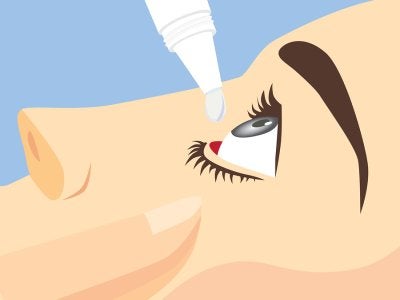Dry eye symptoms are problematic for many people. There are several eye care strategies that residents of Derry can use to improve eye health, such as using artificial tears. Changing some lifestyle habits might also contribute to better eye health. However, these lifestyle modifications are not intended to be a substitute for proper eye care by an ophthalmologist. If you suffer from persistent or bothersome dry eye symptoms, schedule a visit with an eye doctor to discuss effective treatments for long-term relief.
Smoking Cessation 
At least one study has linked smoking to an increased risk of dry eyes. While the study does not offer conclusive evidence that smoking causes uncomfortable dry eye symptoms, it is advisable to talk to a doctor about smoking cessation methods if you currently smoke. If you do not smoke, try to limit your exposure to secondhand smoke, since this is a known eye irritant. Smoking also increases the risk of other vision problems, such as cataracts, which are areas of clouding on the lenses. It can contribute to macular degeneration, which results in blind spots and permanent vision loss. Smoking can even raise the risk of uveitis, which is a serious eye disease that may lead to blindness.
Cholesterol Ratio
It’s common knowledge that unhealthy cholesterol levels can lead to heart disease. But did you know that it can affect your eyes? It’s important to assess your cholesterol ratio, rather than just your total cholesterol. It’s ideal to have a high level of high-density lipoprotein (HDL) cholesterol and a low level of low-density lipoprotein (LDL) cholesterol compared to your total cholesterol level. Those who do have favorable HDL to total cholesterol ratios are less likely to develop dry eye symptoms. To boost your HDL cholesterol level, quit smoking if applicable, lose weight, exercise regularly, and limit alcohol consumption.
Electronic Devices
Electronic devices can make many everyday tasks easier, but they can also take a toll on certain aspects of your health. If your job requires that you stare at a computer screen all day, you may be more likely to develop dry eyes. People tend to not blink as much as they should when staring at a screen, which contributes to dry eyes. Try looking away from the screen periodically and remind yourself to blink regularly.

